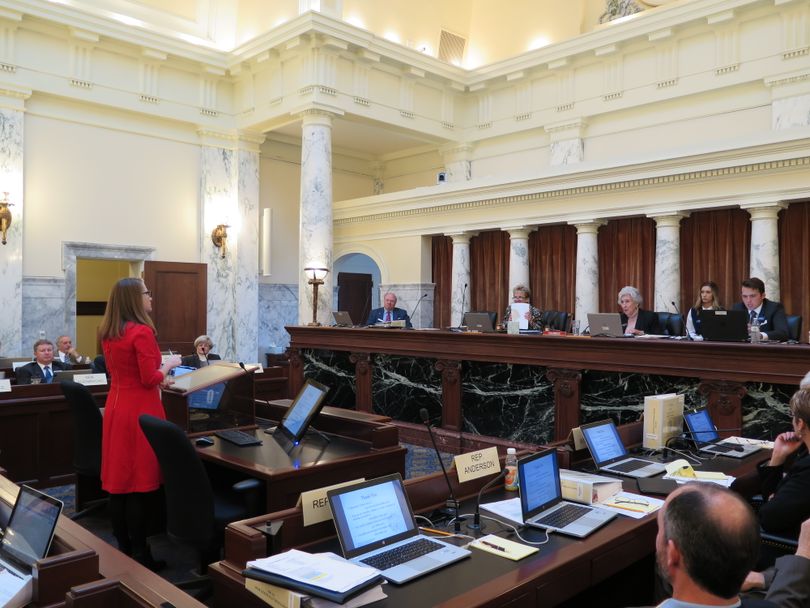Change in how public school budget funds health insurance, discretionary funds raises question in JFAC

Gov. Butch Otter’s budget director, Jani Revier, briefed the Joint Finance-Appropriations Committee this morning on the governor’s budget proposal for next year, running rapid-fire through line items and numbers. At the end of the briefing, surprisingly, there was just one question.
JFAC Co-Chair Sen. Shawn Keough, R-Sandpoint, asked about the governor’s proposal to add a $15 million line item in the public school budget for increased health insurance costs, but not provide any increase to school districts in discretionary funds, from which they now cover those costs, along with an array of other items from electric bills to aides. “What’s the reasoning behind that move?” Keough asked.
Revier deferred the question to Marilyn Whitney, Otter’s deputy chief of staff and education adviser, saying it’s a policy, rather than budget, issue. Keough noted that while that may well be the case, it has budget implications.
Whitney told JFAC, “As you all know, there has been an interim legislative committee that has been working under the direction of Rep. Horman and Sen. Winder on the issue of public education funding. They’ve been listening to superintendents and administrators throughout the state, and meeting with all kinds of stakeholders. One of the recurrent themes that has come up is that much of the burden on discretionary funding for the districts is the increase in the cost of health benefits for all of the employees in the public school system. One of the ideas that has been discussed is actually pulling a portion out of the discretionary funding that would be recommended for just that.” Instead, she said, “What the governor has recommended is actually an increase … should the Legislature decide to move forward with that.”
Revier said the funding would be contingent on legislation passing to index it, so it would reflect the growth in school districts’ health insurance costs each year.

Whitney said, “By adding the $15 million, we’re reducing pressure on the rest of the discretionary costs so that they have the flexibility and more funding for the things that you just described.”
After the meeting, Keough said, “I think I better understand what their thinking is, that if they fund what they think the health insurance cost increase will be in the line item, that will free up money. So the question is: Is that $15 million new money on top? I think that might make sense. If it’s not new money, then it’s problematic,” for example, if it’s pulled from elsewhere in the public school budget.
Keough noted that her local school districts have told her they use their discretionary funds mainly to pay “heat bills, electricity, and those type of hard costs,” though health insurance sometimes also takes up a part. The state Board of Education recently surveyed school districts about their use of discretionary funds, asking for approximate percentages and categories. The results: 19% health insurance; 8% utilities; 43% certified and classified salaries and benefits; 8% operating expenditures; 22% other.
Asked about the dearth of questions from JFAC members for the governor’s budget chief, Keough said, “I think it’s sinking in.” The 20-member joint committee has 10 new members this year.
Keough noted that her co-chair, Rep. Maxine Bell, R-Jerome, advised members that they’ll get further into the issues in the governor’s budget proposal during each agency budget hearing. Also, Revier noted that the governor’s Division of Financial Management has been asked to address each line item at those hearings. She said for the many “worthwhile requests” that weren’t funded due to lack of available funds, DFM staffers likely will say just that.
Keough said as the new members on JFAC get up to speed, “I think we’ll get lots of great questions, and it will cause those of us that have been here for a while to think – we’ll get new questions and new energy.”
